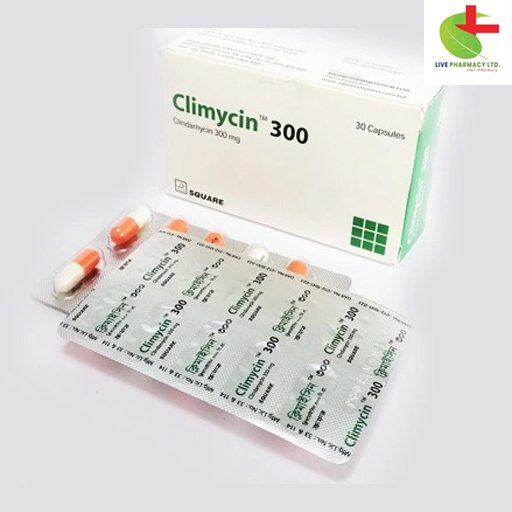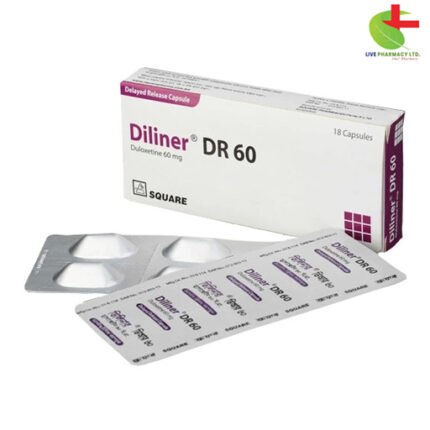Climycin
180.00৳ Strip
- Discover relief with Climycin, a reliable antibiotic effective against various infections.
- Targets respiratory, skin, joint infections, and more for comprehensive treatment.
- Derived from lincomycin, it combats both aerobic and anaerobic bacteria.
- With precise dosage guidelines and safety measures, Climycin ensures reliable results.
- Trust for quality medications and expert guidance on your journey to wellness.
 Brand
Brand
|
Square Pharmaceuticals PLC |
|---|---|
 Generics
Generics
|
Clindamycin |
Indications
Climycin is a trusted remedy effective against various infections caused by susceptible anaerobic bacteria and gram-positive bacteria such as Streptococci, Staphylococci, and Pneumococci. It’s indicated for treating upper and lower respiratory infections, skin and soft tissue infections, bone and joint infections, pelvic infections, intra-abdominal infections, septicemia, endocarditis, and dental infections. Additionally, it serves as an alternative therapy in combination with quinine or amodiaquine for multi-drug resistant Plasmodium falciporum infection.
Description
Climycin, a lincosamide antibiotic, is derived from lincomycin and is proven effective against susceptible microorganisms. It targets a wide range of bacteria, including aerobic gram-positive cocci like Staphylococcus aureus and Streptococci, as well as anaerobic bacteria like Bacteroides and Fusobacterium species.
Dosage & Administration
- For Clindamycin Capsules (Adults):
- For serious infections: 150-300 mg every six hours.
- For more severe infections: 300-450 mg every six hours.
- For Clindamycin Powder for oral solution:
- Dosage ranges based on severity and patient weight, divided into 3 or 4 equal doses.
- For Clindamycin IV/IM Injection:
- Dosage varies for adults, neonates, and pediatric patients based on infection severity.
Interaction
Climycin may enhance the action of neuromuscular blocking agents and should be used cautiously with them. Concurrent use with erythromycin should be avoided due to potential antagonism.
Contraindications
Patients with known sensitivity to clindamycin or its ingredients should not use Climycin.
Side Effects
Adverse effects may include abdominal pain, esophagitis, nausea, vomiting, diarrhea, pruritus, skin rashes, and urticaria.
Pregnancy & Lactation
Climycin is classified as Pregnancy Category B and should be used during pregnancy only if clearly needed. It can pass into breast milk, so caution is advised in nursing mothers.
Precautions & Warnings
Climycin should be prescribed cautiously in patients with a history of gastrointestinal disease, particularly colitis.
Use in Special Populations
Monitoring organ system functions is advisable when administering Climycin to newborns and infants. Dose adjustment is not necessary for geriatric patients.
Overdose Effects
Overdosage with Climycin is rare but may result in adverse reactions similar to normal doses. Gastric lavage is recommended for treatment.
Therapeutic Class
Climycin belongs to the macrolides class of antibiotics.
Reconstitution & Storage
Follow specific directions for reconstitution and storage provided with Climycin products, keeping them below 30°C, away from light and moisture, and out of reach of children.
This rephrased content is designed to improve SEO visibility while providing clear, concise information about Climycin and its usage. Let me know if you need further adjustments!













Reviews
There are no reviews yet.